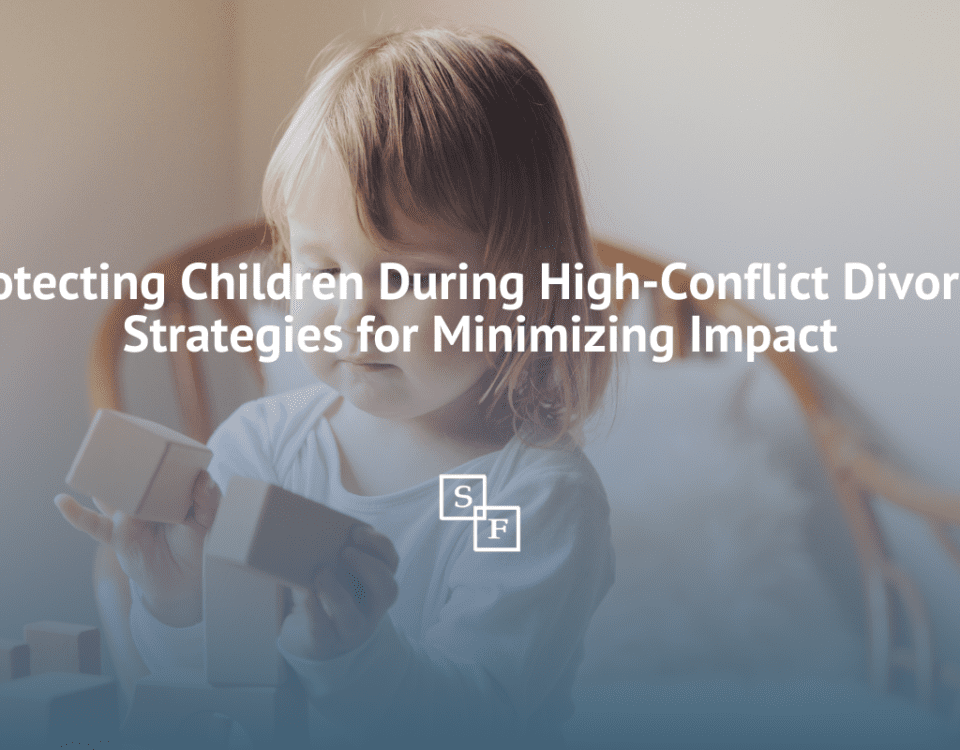HIGH CONFLICT DIVORCES AND CUSTODY CASES
Need to Make an Appointment?
Recognizing the Challenges of Divorcing a Narcissist
Narcissists are known for using tactics such as gaslighting, manipulation, and hostility to maintain control and escalate conflicts during divorce. If you're facing this situation, it’s crucial to understand how their behavior can impact everything from asset division to child custody.
Common tactics include:
- Emotional manipulation to undermine your confidence or credibility.
- Delaying legal processes to exhaust your time and resources.
- Using children as leverage to maintain control or inflict emotional harm.
Steps to Protect Yourself During the Divorce Process
1. Build the Right Support Team
- Hire an Experienced Attorney: Choose a family law attorney with a strong background in handling narcissistic personalities and high-conflict custody cases.
- Seek Counseling: Therapy can help you process emotions, set boundaries, and stay resilient.
- For Children: Consider therapy for your kids to help them navigate the emotional toll of the divorce.
- Lean on Your Support Network: Family and friends can provide crucial emotional and logistical support.
2. Document Everything
When divorcing a narcissist, thorough documentation can be the key to a successful outcome. Keep detailed records of:
- Communications (texts, emails) to create a factual paper trail.
- Instances of manipulative or abusive behavior.
- Financial records, including discrepancies or hidden assets.
- Evidence of behavior that impacts the children’s well-being.
3. Set and Maintain Boundaries
- Use the Gray Rock Strategy to minimize emotional engagement:
- Respond with neutral, factual communication.
- Avoid sharing personal feelings or engaging in conflict.
- Use written communication to ensure accountability and maintain a record.
4. Prepare for Custody Disputes
Custody battles with a narcissist can be intense, but focusing on your children’s best interests is paramount.
- Advocate for Your Children: Emphasize their emotional and physical well-being in court.
- Parallel Parenting: If co-parenting is unworkable, consider parallel parenting with strict boundaries and minimal direct interaction.
- Custody Evaluations: A neutral evaluator can assess parenting abilities and document concerns about the narcissist’s behavior.
Resources to Help You Succeed
Legal Support
We understand the complexities of divorcing a narcissist and are here to guide you every step of the way. Our experienced attorneys specialize in high-conflict divorce cases and can help you develop a customized legal strategy.
Emotional and Family Support
Therapy Resources: Individual therapy can help you stay grounded, while child counseling supports your kids’ emotional health.
Parenting Classes: Learn effective strategies for managing co-parenting with a narcissistic ex-spouse.
Documentation Tools
Keep a journal of key events, including dates, times, and specific details.
Save all written communications to present as evidence in court if necessary.
What Sets Us Apart?
At SeiferFlatow, we are committed to helping you reclaim your peace of mind. With years of experience in high-conflict divorce cases, we provide the legal knowledge and emotional understanding necessary to help you achieve the best possible outcome.
Our Approach:
- Personalized legal strategies tailored to your needs.
- Compassionate guidance throughout the process.
- Strong advocacy for you and your children.
Start Your Journey Today
Divorcing a narcissist requires a clear strategy, professional support, and a focus on your future. At SeiferFlatow, we are here to help. Contact us today to schedule a consultation and take the first step toward a brighter, more secure future.
Need to Make an Appointment?
Divorcing a narcissist presents unique challenges due to their manipulative behaviors and lack of empathy. To protect yourself and your children during such a process, it's essential to implement strategies that minimize conflict and safeguard your well-being. The gray rock technique, which involves remaining emotionally unresponsive to the narcissist's provocations, can help reduce their manipulative influence. Additionally, maintaining thorough documentation of all interactions and setting firm boundaries are crucial steps. Seeking support from professionals experienced in high-conflict divorces can provide guidance tailored to your situation. Prioritizing your mental health and that of your children is paramount, ensuring access to counseling services as needed. By employing these strategies, you can navigate the complexities of divorcing a narcissist more effectively.
In high-conflict divorces, meticulous documentation is crucial for building a compelling case. By systematically recording interactions, financial transactions, and instances of concerning behavior, individuals can establish patterns that may be pivotal in legal proceedings. This comprehensive record-keeping not only bolsters credibility but also provides concrete evidence to support claims, ensuring that the court has a clear and factual basis for decision-making. Implementing effective documentation strategies can significantly influence the outcome of disputes, particularly in complex divorce scenarios.
Divorcing a spouse with Narcissistic Personality Disorder (NPD) presents unique challenges due to their traits of grandiosity, lack of empathy, and manipulative behaviors. Understanding these characteristics is crucial for effectively navigating the divorce process. Implementing strategies such as thorough documentation of interactions, setting firm boundaries, and seeking support from professionals experienced in high-conflict divorces can help protect one's interests. Prioritizing the well-being of any children involved is essential, ensuring they have access to appropriate support systems during this challenging time.
Meet the Family Law Team
Missy’s mission is to help individuals navigate through these highly bureaucratic systems while providing superior client service and advocacy.
Read more about Missy and how she helps her family law clients in NC.
Megan understands that each client’s situation is unique, and she is committed to serving as a fierce and compassionate advocate for all of her clients. She practices empathy with every client to ensure that they feel that their concerns are heard and their needs are met.
In her 10-plus years of experience as a family law paralegal, Lisa has become passionate about putting the client’s needs first. She understands the circumstances that bring clients to our office are often unsettling and it is her desire to use her experience and skills to make the process a little easier.







